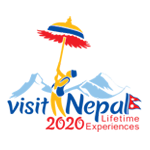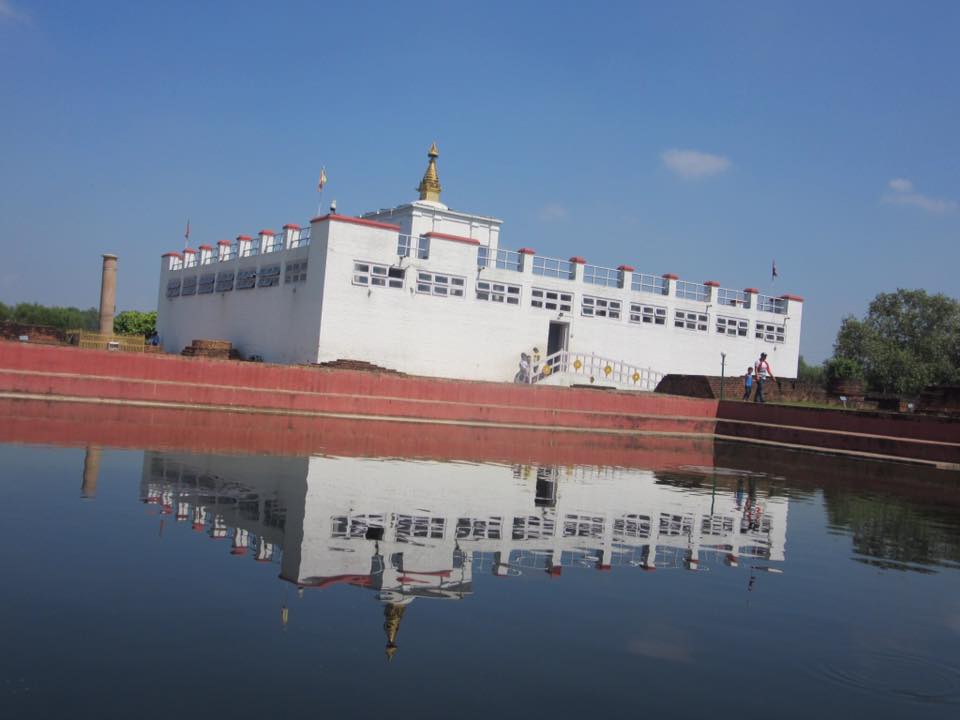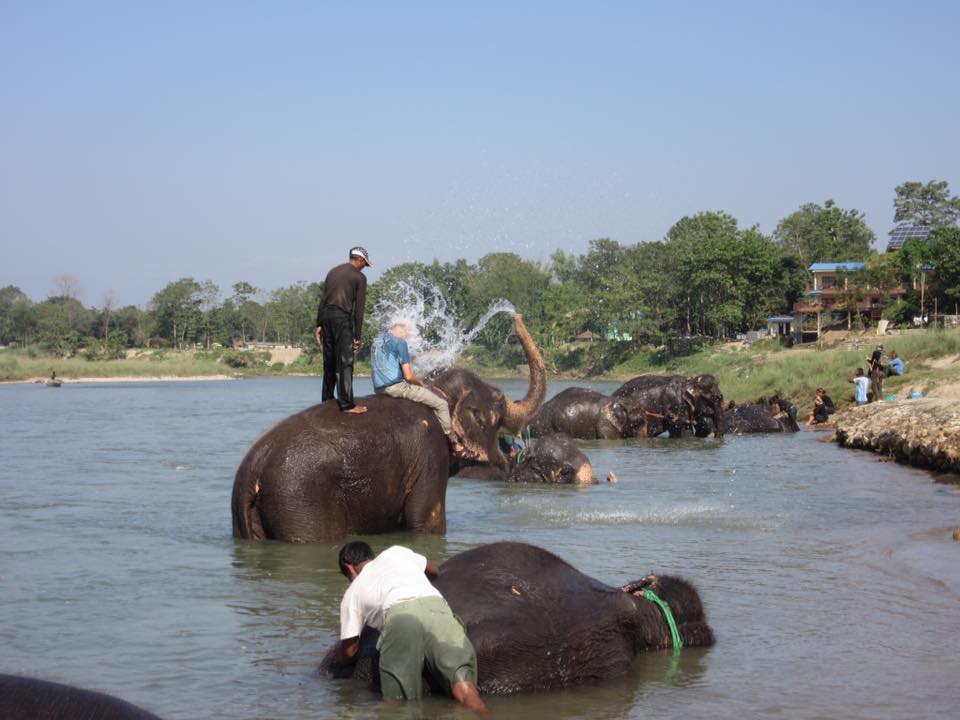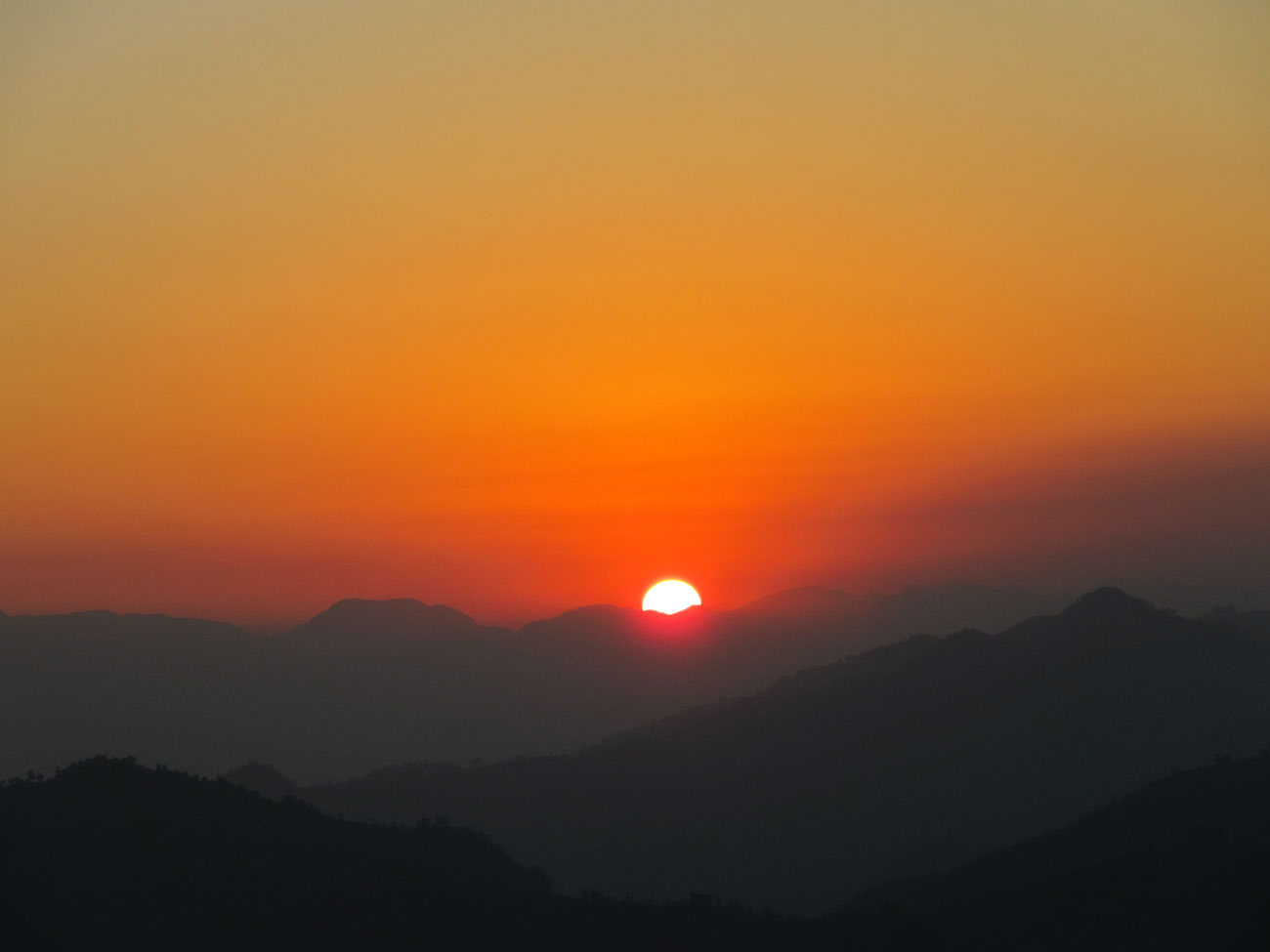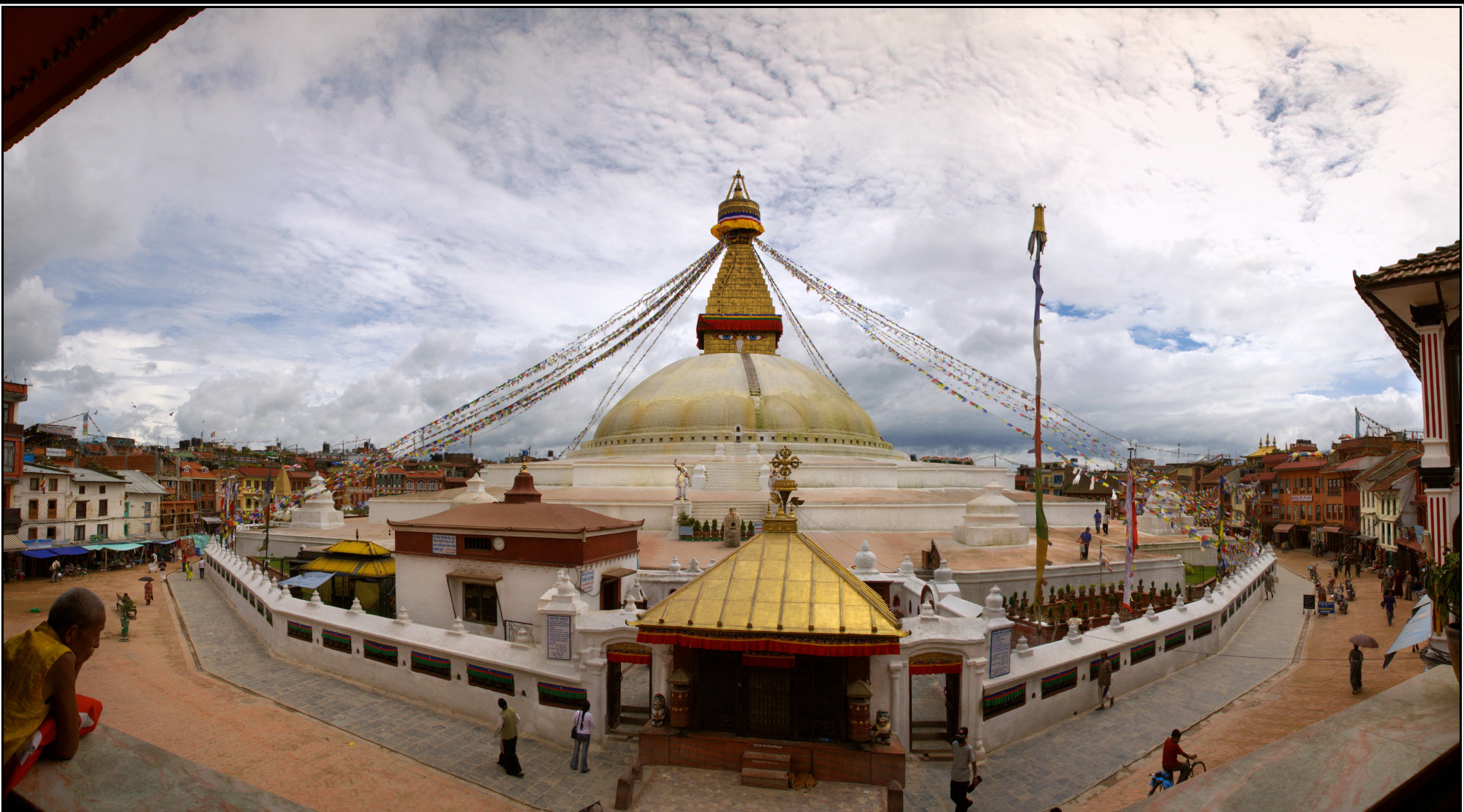01: Why to choose Vedic Himalayan Adventure?
Provide information on Nepal Tours, Travels and Tourism and guides you to plan your trip as per your choice and interest
If the tour itinerary given in the website suits you, you can book online, e-mail, call or fax us. Also if you want to customize your trip, we can start the dialogue and together we can develop an itinerary that really suits your utmost interests and travel dates. To help you in customizing the trip, decide the duration that you wish to spend in Nepal, destinations and the duration of stay in Nepal will determine your package costs.
03: How can I obtain a visa to travel to Nepal? Is there any country or embassy that issues visas on behalf of Nepal?
The best way to apply for visa is from the Nepalese diplomatic missions in your country. The other choice is to get it from Immigration office at the entry points of Nepal. All foreign nationals, except Indian Citizens need visas to enter Nepal. TIA Airport upon the payment of the fee of US$ 40.Two copies of passport photos are required on the arrival. The visas can be extended, if required, upon the additional payment of US$ 30.
04: When is the best season to travel to Nepal?
The best season to visit Nepal is from March to May and September to December . However, some tourists prefer to visit Nepal in the lean season too because there are abundant choices in terms of accommodation and flight bookings can be done very easily. June/August it is better to do trek belong to rain shadow like Upper Mustang, Dolpa in Nepal and Mt. Kailash in Tibet.
05: Do we need to cover travel insurance?
Yes, we advise you to get your insurance cover from your respective country.
06: What kind of hotels do you use?
In Kathmandu we do provide stars hotel as per you request we provide you other types of hotels and during the trekking, we provide you guest house which is called tea house. Tea house are more like hotels with hot showers, western food and private room (twin sharing). In this arrangement overnight halts with dinner and breakfast will be in Tea houses (Lodges) and Lunch in local restaurants en-route. Furthermore as you will be staying in locally owned lodges you will be benefiting and interacting with the local community. It will give you a true feel for the Nepalese people and their lives.
07: What kind of tour & trekking guide do you use for the trip?
We use knowledgeable, experienced and English speaking guides. French, Spanish, German and Japanese speaking guides can also be arranged for a group of three or more persons upon the additional fees.
08: Is it ok to take photographs of people of Villages?
Yes, it is ok and they really get a kick out of seeing themselves in print. So if you take photographs, please take copies and post them back that will make sure they get delivered back to the people on one of your treks. But it is better to take permission from them before t taking photographs. Sometimes they may angry in taking photos without asking them.
09: Do I have to tip my guide/porter?
Your porter/guide should not 'ask you' for anything, however at the end of your trek if he has done a good job and you feel he warrants a thank you, by all means give him something.
10: How much weight do I allow for my porter?
You should allow 5 kg for your personal porters own gear such as his torch, clothes and other items he may feel essential for his trek. It is best to bring two backpacks with you. A smaller pack for yourself to carry your water and favorite snack bars, and the bigger pack with a maximum of 20 kg including sleeping bag, will carry by personal porters.
11: Should I feel embarrassed expecting a porter to carry my pack?
Definitely not. If you can afford a personal porter it is highly recommended.
No, you do not have to be a marathon runner or training for the Olympics. But you do have to be fit and healthy. Depending on your walking/trekking speeds, you may have to trek for 5 to 7 hours per day on a trek, and no mountaineering skills needed, to do trek.
13: Trek Briefing?
Your trekking briefing will be done by Across Himalaya before departure of Trek.
14: Are there any age restrictions?
No, there are any age restrictions. We can be designed trek for children/teenager/ pensioner. For children and pensioner, we offer short and easy trek around Kathmandu and Pokhara Valley. For adult and teenager, we offer moderate to hard trek, like Everest Base Camp/ Manaslu/ Dolpa/ Mustang/ Annapurna/ Langtang etc.
15: What if I haven't camped before?
Don't worry.....we make it easy! Most of our first timers actually grow to love sleeping in the great outdoors. You will sleep in good quality, two person tents which you share with only one other trekkers of same sex. We provide all Trekkers with a thermal sleeping mat. For those who want added comfort, you can bring your own mattress. On lodge/Teahouse Trek, normally single trekkers share rooms with only one other of same sex.
16: Can I make my trek longer?
Yes, it is our pleasure. Just let us know what you would like and we will do our best to help you. We never force our clients to follow our set itineraries. We can make our itineraries flexible accordingly client’s interest.
17: What do I bring?
We have listed a few essentials that you will have to bring along and when you make your booking we will send you out a full list of essentials.
18: What's involved in a Typical Day?
As we do Organized/Tent trekking, our trained cook set menu himself and prepared. But when we do, teahouse/lodge basis trekking, we choose the same menu for breakfast/lunch/dinner/ for all but changes the menu daily so that we could do a bit contribution for preserving green tourism. We trekked, we will do our best to introduce you with local culture and taste.
20; Will I be able to deal with the high altitude?
Our itineraries are designed so that our clients ascend at a sensible and safe rate. The effects of altitude are felt by gentle acclimatization allows them to reach their high point without any problems.
21: Is Communication to home possible on trek?
There are telephones in many villages along the popular trekking routes from which you can make international calls. We inform daily trekking report to your relatives to home.
22: Will somebody come to pick me up at the Airport on my arrival?
Provide information on Nepal Tours, Travels and Tourism and guides you to plan your trip as per your choice and interest
- Offers quality service meeting all your travel needs
- Offers special rate, if you book the tour directly with us with the same quality service
- Provide tours and travels services to a smaller and manageable group so that each and every guest gets proper care, attention and high standard services
- Guides you to customize your trip based on your interest and area of specialization
- Arrange your Domestic and International Air ticket to and from Nepal on free of commission
- Offers safer and secure mode of payment
If the tour itinerary given in the website suits you, you can book online, e-mail, call or fax us. Also if you want to customize your trip, we can start the dialogue and together we can develop an itinerary that really suits your utmost interests and travel dates. To help you in customizing the trip, decide the duration that you wish to spend in Nepal, destinations and the duration of stay in Nepal will determine your package costs.
03: How can I obtain a visa to travel to Nepal? Is there any country or embassy that issues visas on behalf of Nepal?
The best way to apply for visa is from the Nepalese diplomatic missions in your country. The other choice is to get it from Immigration office at the entry points of Nepal. All foreign nationals, except Indian Citizens need visas to enter Nepal. TIA Airport upon the payment of the fee of US$ 40.Two copies of passport photos are required on the arrival. The visas can be extended, if required, upon the additional payment of US$ 30.
04: When is the best season to travel to Nepal?
The best season to visit Nepal is from March to May and September to December . However, some tourists prefer to visit Nepal in the lean season too because there are abundant choices in terms of accommodation and flight bookings can be done very easily. June/August it is better to do trek belong to rain shadow like Upper Mustang, Dolpa in Nepal and Mt. Kailash in Tibet.
05: Do we need to cover travel insurance?
Yes, we advise you to get your insurance cover from your respective country.
06: What kind of hotels do you use?
In Kathmandu we do provide stars hotel as per you request we provide you other types of hotels and during the trekking, we provide you guest house which is called tea house. Tea house are more like hotels with hot showers, western food and private room (twin sharing). In this arrangement overnight halts with dinner and breakfast will be in Tea houses (Lodges) and Lunch in local restaurants en-route. Furthermore as you will be staying in locally owned lodges you will be benefiting and interacting with the local community. It will give you a true feel for the Nepalese people and their lives.
07: What kind of tour & trekking guide do you use for the trip?
We use knowledgeable, experienced and English speaking guides. French, Spanish, German and Japanese speaking guides can also be arranged for a group of three or more persons upon the additional fees.
08: Is it ok to take photographs of people of Villages?
Yes, it is ok and they really get a kick out of seeing themselves in print. So if you take photographs, please take copies and post them back that will make sure they get delivered back to the people on one of your treks. But it is better to take permission from them before t taking photographs. Sometimes they may angry in taking photos without asking them.
09: Do I have to tip my guide/porter?
Your porter/guide should not 'ask you' for anything, however at the end of your trek if he has done a good job and you feel he warrants a thank you, by all means give him something.
10: How much weight do I allow for my porter?
You should allow 5 kg for your personal porters own gear such as his torch, clothes and other items he may feel essential for his trek. It is best to bring two backpacks with you. A smaller pack for yourself to carry your water and favorite snack bars, and the bigger pack with a maximum of 20 kg including sleeping bag, will carry by personal porters.
11: Should I feel embarrassed expecting a porter to carry my pack?
Definitely not. If you can afford a personal porter it is highly recommended.
- It gives wages to the people who earn a living for trekking.
- This is the terrain where they grew up. Hence they make walking up and down mountains look easy.
No, you do not have to be a marathon runner or training for the Olympics. But you do have to be fit and healthy. Depending on your walking/trekking speeds, you may have to trek for 5 to 7 hours per day on a trek, and no mountaineering skills needed, to do trek.
13: Trek Briefing?
Your trekking briefing will be done by Across Himalaya before departure of Trek.
14: Are there any age restrictions?
No, there are any age restrictions. We can be designed trek for children/teenager/ pensioner. For children and pensioner, we offer short and easy trek around Kathmandu and Pokhara Valley. For adult and teenager, we offer moderate to hard trek, like Everest Base Camp/ Manaslu/ Dolpa/ Mustang/ Annapurna/ Langtang etc.
15: What if I haven't camped before?
Don't worry.....we make it easy! Most of our first timers actually grow to love sleeping in the great outdoors. You will sleep in good quality, two person tents which you share with only one other trekkers of same sex. We provide all Trekkers with a thermal sleeping mat. For those who want added comfort, you can bring your own mattress. On lodge/Teahouse Trek, normally single trekkers share rooms with only one other of same sex.
16: Can I make my trek longer?
Yes, it is our pleasure. Just let us know what you would like and we will do our best to help you. We never force our clients to follow our set itineraries. We can make our itineraries flexible accordingly client’s interest.
17: What do I bring?
We have listed a few essentials that you will have to bring along and when you make your booking we will send you out a full list of essentials.
18: What's involved in a Typical Day?
- 07.30 Breakfast
- 08.30 Start Walking
- 11.00 Tea/Coffee Break
- 01.00 Lunch Break
- 04.00 Reach to Guesthouse.
- 07.00 Evening Meal.
- 08..00 Briefing for the Next Day
- 08.30 Entertainment.
As we do Organized/Tent trekking, our trained cook set menu himself and prepared. But when we do, teahouse/lodge basis trekking, we choose the same menu for breakfast/lunch/dinner/ for all but changes the menu daily so that we could do a bit contribution for preserving green tourism. We trekked, we will do our best to introduce you with local culture and taste.
20; Will I be able to deal with the high altitude?
Our itineraries are designed so that our clients ascend at a sensible and safe rate. The effects of altitude are felt by gentle acclimatization allows them to reach their high point without any problems.
21: Is Communication to home possible on trek?
There are telephones in many villages along the popular trekking routes from which you can make international calls. We inform daily trekking report to your relatives to home.
22: Will somebody come to pick me up at the Airport on my arrival?

